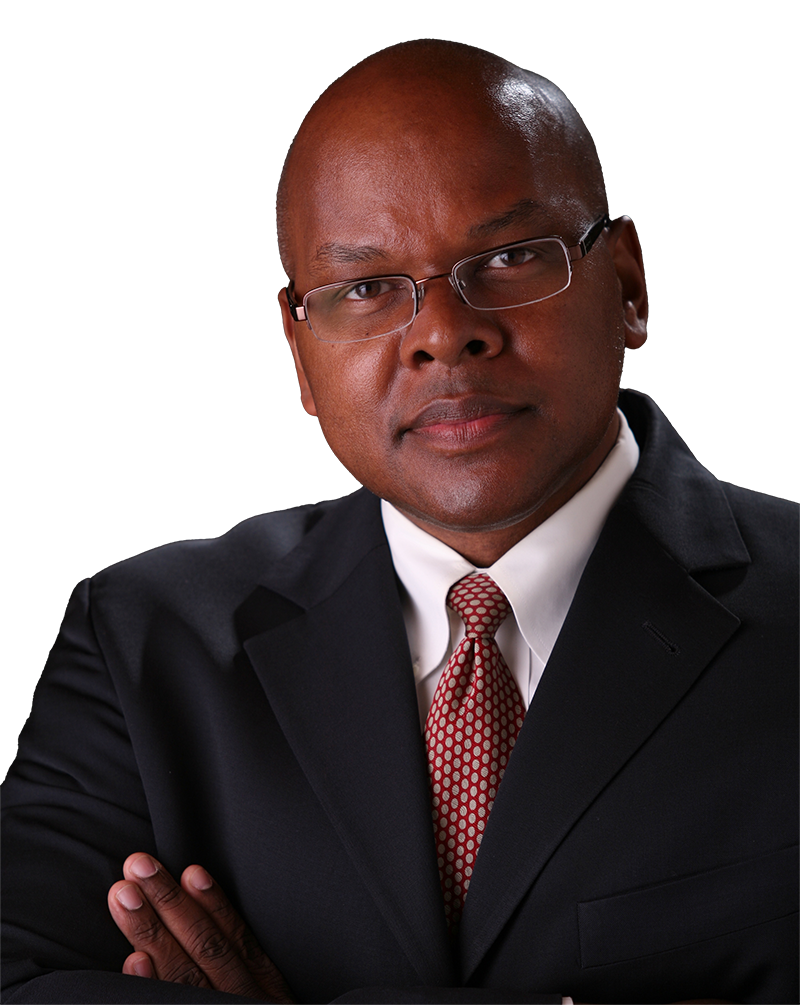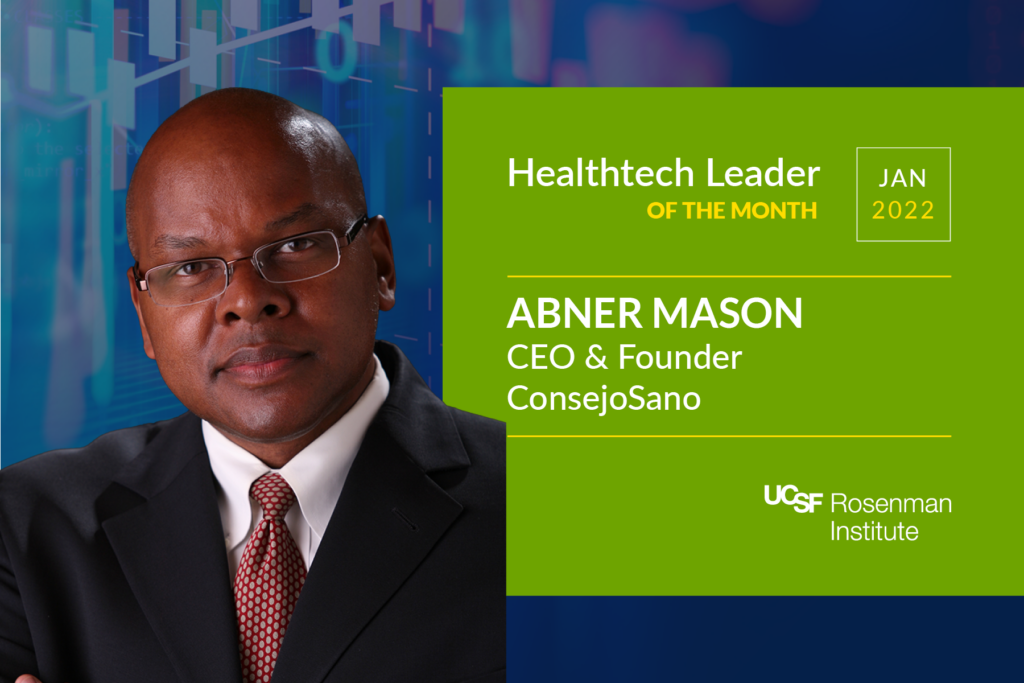 For the January installment of Healthtech Leader of the Month we’re featuring Abner Mason, the founder and CEO of SameSky Health (formerly ConsejoSano). SameSky Health’s cultural experience solution is designed to increase engagement with the healthcare system by offering multilingual, culturally relevant messaging and support to patients. Abner founded ConsejoSano — which translates loosely to “healthy advice”— to make care accessible to everyone, not just those who speak English as a first language.
For the January installment of Healthtech Leader of the Month we’re featuring Abner Mason, the founder and CEO of SameSky Health (formerly ConsejoSano). SameSky Health’s cultural experience solution is designed to increase engagement with the healthcare system by offering multilingual, culturally relevant messaging and support to patients. Abner founded ConsejoSano — which translates loosely to “healthy advice”— to make care accessible to everyone, not just those who speak English as a first language.
Who You Are Matters: Why SameSky Health is Unique
Abner founded SameSky Health to build relationships with patients who have been historically left behind by the healthcare system. “When it comes to engagement, healthcare still works like it did in the 70’s,” he says. “Content is created by an English speaker, typically for an English speaker. They might translate it into other languages, but it’s usually not translated well.”
For this reason, healthcare is often hugely biased against marginalized populations, because there’s no understanding of background differences. “Healthcare treats you and me like we’re the same,” says Abner. “And the truth is we’re not the same. We have different levels of trust for the health system. We have different abilities to engage in healthcare, and different levels of willingness to engage. The social determinants of health impact us differently.”
Abner’s solution to this, embodied by SameSky Health, is to build in better and more personalized patient engagement. “We’ve got to get away from that one size fits all kind of approach and actually engage with the patient or the health plan member in a way that is more personalized and customized, and that treats them like who they are matters,” says Abner.
It’s this understanding — that who patients are matters — that makes SameSky Health both unique and successful. “What we’re finding is that people want to get healthcare in the way that works for them,” says Abner. “And that’s different for different people.”
And though Abner is proud of SameSky Health and their work, he wishes, from an ethical perspective, that they were less unique. “The reason I founded SameSky Health was I wanted to create that more personalized, customized experience, because I knew it would build trust,” he says. “But as I look across the healthcare in the US, very few companies are engaging with patients or health plan members in that way.”
From Leader to Leader: 3 Lessons Learned
Abner Mason has spent his career working to give patients access to life-changing healthcare, in the governmental sector as well as the private sector. From his years of experience, here are three lessons he wants to pass on to the next generation of rising healthtech entrepreneurs.
#1: Get a mentor, be a mentor
Abner’s first lesson for rising entrepreneurs is to seek out an older, more experienced person in the industry who can serve as an advisor and friend. “Get someone who knows a whole lot more about healthcare than you,” he says. “It is one of the most important things you can do if you want to be successful.”
And after that? Pay it forward, and be a mentor to someone else. “It’s not just getting a mentor for yourself. It’s also, when the time is right, you should be one,” says Abner, “if you’re lucky enough to get in a position where you can provide that kind of guidance or advice, or be that kind of influence in someone else’s life.”
As the workforce struggles with diversity and inclusion, mentorship is especially essential. “Particularly if you’re a person of color or if you’re a woman, if you know that some of the people who look like you are really going to struggle, if they don’t have strong mentors and people providing them with support, then it’s really important for people like me to try to be as helpful as we can,” Abner says.
#2: Learn how the money moves
Abner’s second lesson is: gain an understanding of cashflow and incentives, and base your technology off those. “Learn how the money moves in healthcare,” advises Abner. “It does not make sense. It is not a normal market. It doesn’t function like a normal market.”
For Abner, this lesson was hard-earned. Early in his career, a potentially life-changing method of conducting healthcare business was shot down because incentives weren’t aligned.
“I thought I got a great idea and it really would make things better for everybody, but it can’t be used because the people who would need to use it couldn’t get paid.”
This taught him early on to trace incentives in order to figure out how to best help patients. “I think it’s really important to understand how money moves in healthcare, because you will waste enormous time and energy and money on things that would be unnecessary if instead you took the time to figure out how the money moves,” he says.
#3: Take care of yourself
Lastly, Abner advises entrepreneurs to take a long-term view on their careers and lives. “You have to prioritize self-care because healthcare is so complicated, and it functions so often in illogical ways,” says Abner. “If you want to make a difference in healthcare, it’s going to take a while and it’s going to be hard.”
“And what that means is you’ve got to take care of yourself,” he says. “This is not a sprint, it’s a marathon. You’ve got to take care of yourself physically, emotionally, and financially.”
Especially in Silicon Valley, this can be difficult for up-and-comers, but Aber says taking the time for self-care works out better professionally in the long run. “If you want to really have an impact and you need to have staying power. People oftentimes take care of other people, then they’ll take care of themselves. This happens in healthcare more often than you would think.”
Customizing (Compassionate) Care: Final Thoughts
In the future, SameSky Health is looking towards building the needed technology to mass-produce customized, personal care. And if that sounds like an oxymoron, it’s not — in fact, it’s already happening, in companies like Netflix and Amazon. “We can deliver a customized individualized engagement experience at scale, meaning engaging millions of people,” says Abner. “But every one of those people gets a different engagement pathway based on who they are.”
Abner hopes this personalized approach will be adopted by other healthcare companies. And though Abner is aware that COVID worsened and revealed disparities in the healthcare system, he has hope for the industry. “I think we are in a moment of enormous opportunity, because there’s this willingness that has never been there before to take meaningful actions to make our healthcare system more equitable, and make it work better for everyone,” says Abner. “So I am encouraged. It’s an encouraging moment.”
Part of the reason for his hope is his own team and the work they do every day.
“One of the things I’m really proud of is the team we built here,” says Abner. “My team looks like the United Nations.”
Join our Vibrant Community!
You’re not alone in your mission to bring better health technology to patients and medical professionals. Now more than ever, connecting with a global community of entrepreneurs is an invaluable step towards realizing your goals within the health technology world.
Receive invitations to free and paid virtual events with healthtech entrepreneurs, payers, and service providers when you subscribe to our newsletter.
Or, if your inbox is a mess, follow us on LinkedIn or Twitter or check out our podcast.
